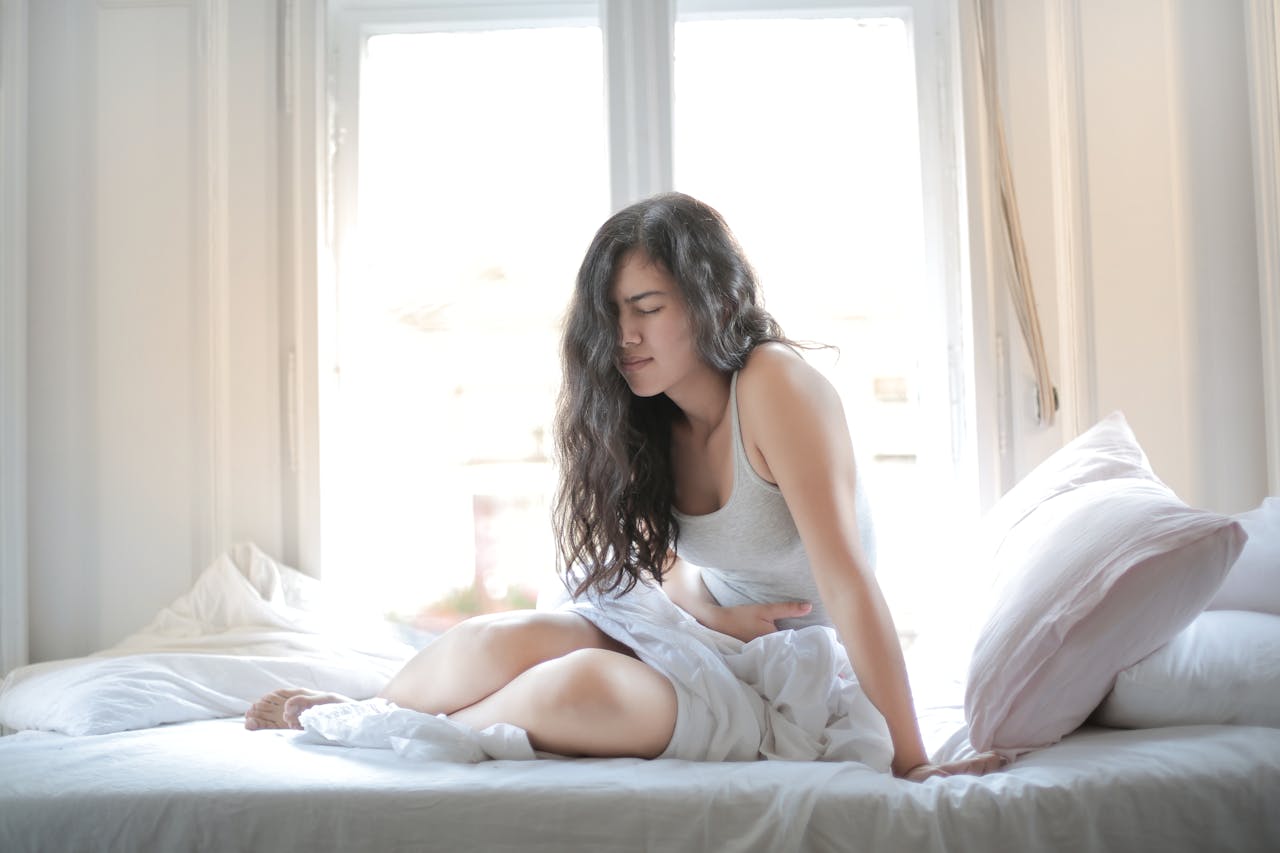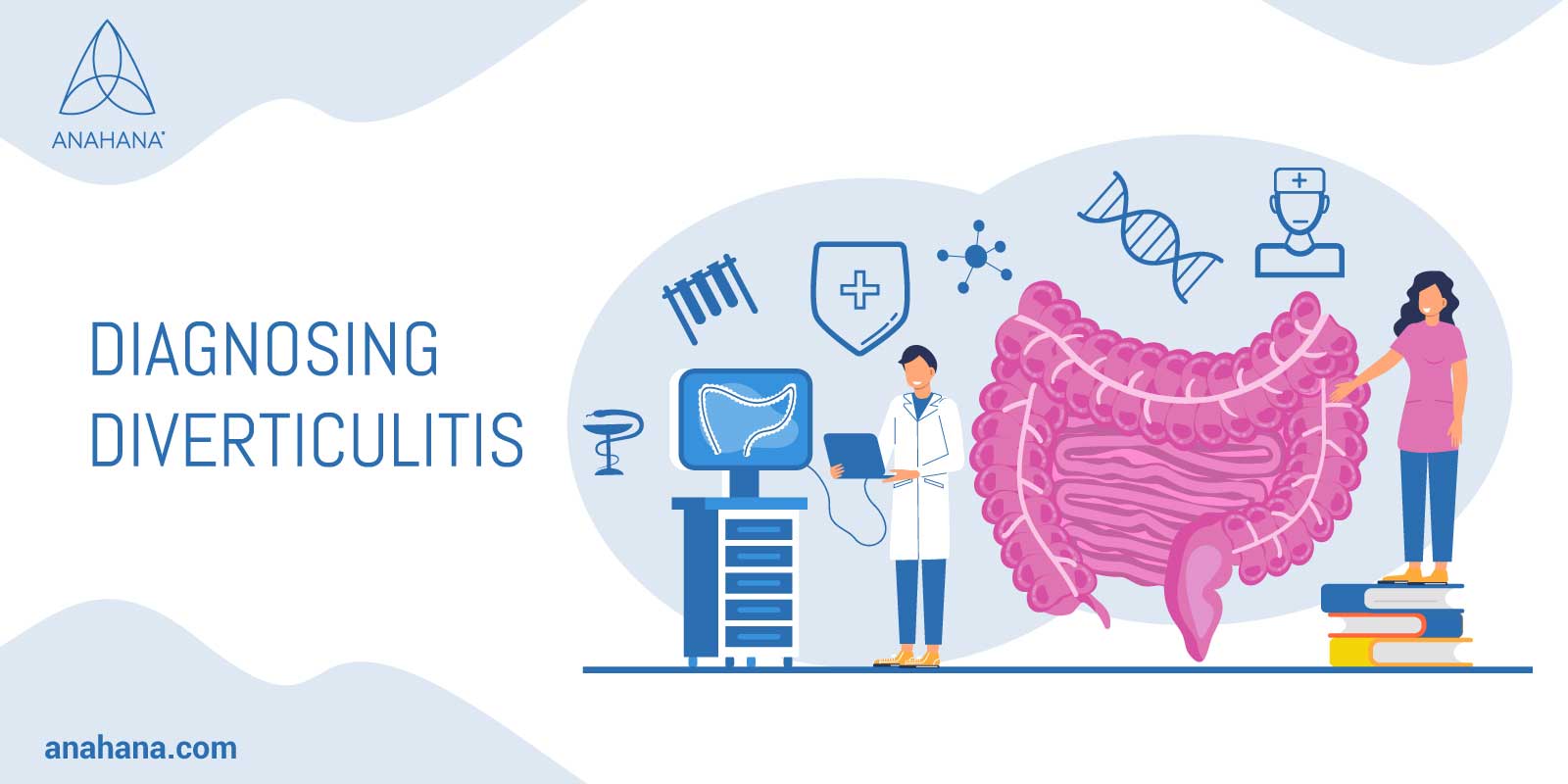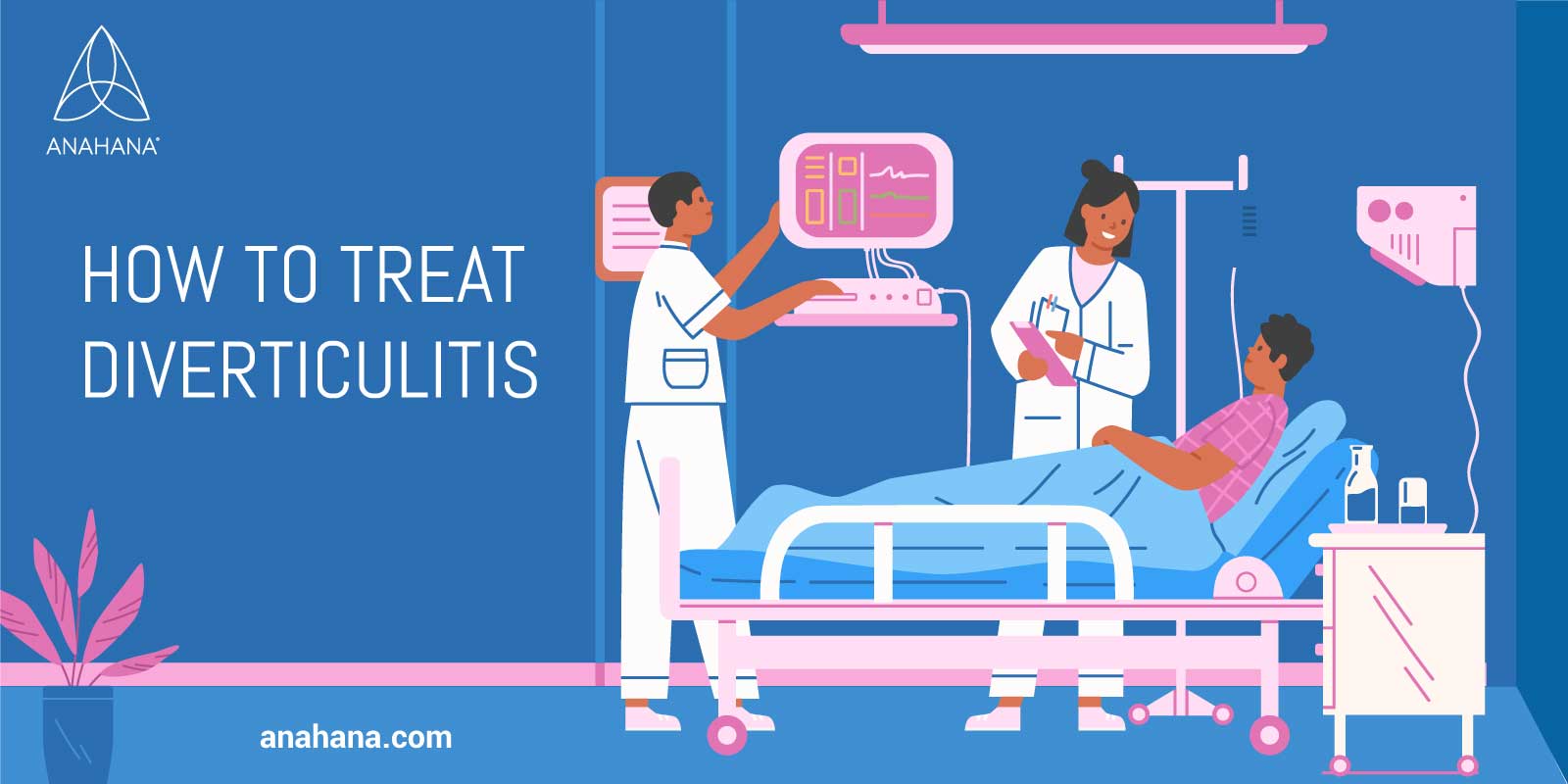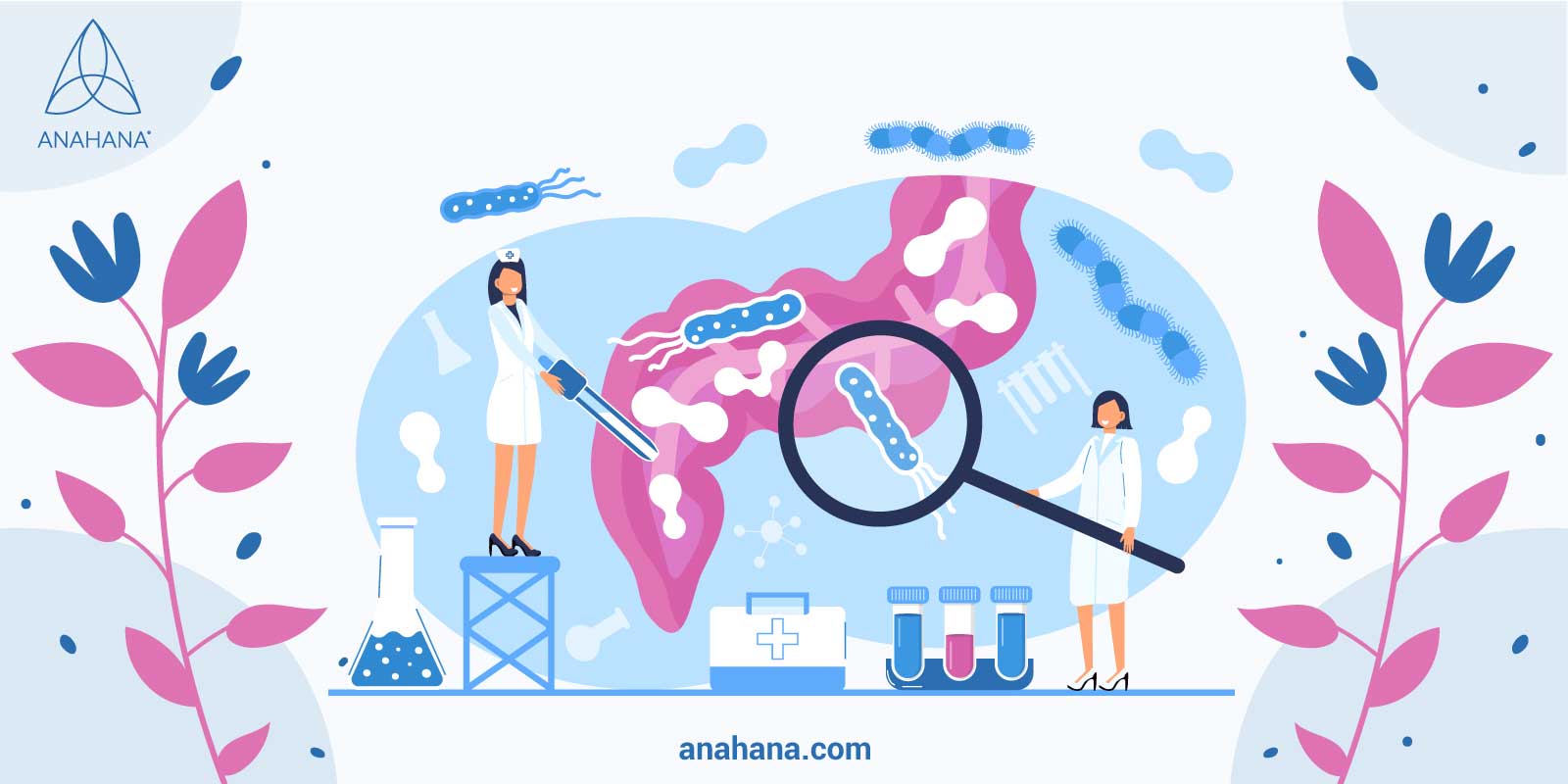
Table of Contents
Diverticulitis is a condition that affects the large intestine. The large intestine is an integral part of your digestive system. The large intestine is located near the end of your digestive tract and plays a significant role in the digestive system. The large intestine absorbs water, mineral, and nutrients from your food and forms your stool.
Key Takeaways
- Definition: Diverticulitis, a digestive and kidney disease, is an inflammatory condition affecting diverticula in the large intestine, leading to chronic inflammation.
- Symptoms: Symptoms of diverticular disease include lower left abdominal pain, fever, nausea, chronic symptoms like constipation, and serious complications like rectal bleeding.
- Risk Factors: Include a low-fiber diet, obesity, smoking, nonsteroidal anti-inflammatory drugs, and chronic diverticulitis.
- Diverticulitis diagnosed: Diverticulitis is an uncommon complication and is diagnosed through medical history, physical exams, blood tests, and imaging like CT scans and colonoscopies.
- Treatments: Include diet modifications, antibiotics, and surgery for severe cases, aiming to prevent diverticulitis.
What is diverticulitis
People with diverticulitis develop diverticula, small pockets formed in the intestinal wall of the large intestine, particularly in the lower left side of the large intestine or colon. Diverticula form due to increased pressure in the colon. These pockets are called diverticula and typically develop in the colon wall's weak spots. The presence of diverticula is not uncommon and can be found in around half the population of 60 and over.
Two terms describe the development of diverticula which are diverticulosis and diverticulitis. Diverticulosis applies when the diverticula in the colon are not inflamed or infected. Diverticulitis occurs when there is inflammation or infection of these diverticula. This inflammation and infection of the diverticula cause the symptoms of diverticulitis, such as abdominal pain.
Diverticulitis Symptoms
In the case of diverticulosis, where there is no infection of the diverticula, there are often no or mild symptoms. In the case of diverticulitis, where there is an infected diverticulum, the most common symptom is abdominal pain, specifically in the lower left side of the abdomen. This pain can range from mild to more severe abdominal pain. Other diverticulitis symptoms include nausea, fever, constipation, occasional diarrhea, and rectal bleeding.
Acute diverticulitis may be more severe and cause additional complications. Some of these complications include developing a blockage in the colon due to scar tissue. There is also a risk of developing a fistula, which is considered a medical emergency. In some cases, infected diverticula may rupture, a severe complication leading to the contents of the large intestine leaking into the abdominal cavity. This complication requires immediate medical attention and potentially emergency surgery.
Diagnosis of Diverticular Disease
 Diverticulitis is diagnosed based on signs and symptoms such as abdominal pain, elevated white blood cells, and bloody stools. A doctor may perform a physical exam to diagnose diverticulitis, including palpating the abdomen to check for pain. A blood test may be performed to check for white blood cell count, and stool samples may be collected to rule out another diagnosis. Sometimes imaging techniques will also be used, such as a CT scan to identify the inflamed diverticula. A colonoscopy may be performed in more chronic cases to rule out other possible co-morbid conditions, such as colorectal cancer.
Diverticulitis is diagnosed based on signs and symptoms such as abdominal pain, elevated white blood cells, and bloody stools. A doctor may perform a physical exam to diagnose diverticulitis, including palpating the abdomen to check for pain. A blood test may be performed to check for white blood cell count, and stool samples may be collected to rule out another diagnosis. Sometimes imaging techniques will also be used, such as a CT scan to identify the inflamed diverticula. A colonoscopy may be performed in more chronic cases to rule out other possible co-morbid conditions, such as colorectal cancer.
Causes and Risk Factors of Diverticulitis
One possible cause of diverticulitis is related to diet. Diets low in fiber and high in animal fat and red meat can be a risk factor for diverticulitis. A low-fiber diet can cause chronic constipation. Constipation can be a cause of the development of diverticulitis. Other lifestyles that could put you and an increased risk or worsen diverticular disease include lack of exercise, obesity, and smoking. There have also been links to certain medications such as steroids, opioids, and nonsteroid anti-inflammatory medications. Having a decreased immune system can also be a contributing factor in developing diverticulitis.
Preventative methods
Some preventative methods assist in lowering your risk of developing diverticulitis. One method is incorporating more fiber into your diet to improve your bowel performance, especially if you experience constipation. Some dietary changes that increase your fiber intake are eating more fruits and vegetables, eating more whole grains, and eating more legumes and fiber-rich cereals. Other preventative measures include drinking lots of water, avoiding smoking, and excessive drinking. Participating in daily exercise and getting enough vitamin D.
Treatments for Diverticulitis
 The treatment options for diverticulitis will depend on the severity of diverticulitis. Some at-home treatments may relieve the symptoms of diverticulitis in mild diverticulitis cases. Some at-home treatments include temporarily following a low-fiber or a liquid diet until symptoms become less frequent (as recommended by the doctor). At the same time, introducing probiotics and herbal treatments help to decrease inflammation.
The treatment options for diverticulitis will depend on the severity of diverticulitis. Some at-home treatments may relieve the symptoms of diverticulitis in mild diverticulitis cases. Some at-home treatments include temporarily following a low-fiber or a liquid diet until symptoms become less frequent (as recommended by the doctor). At the same time, introducing probiotics and herbal treatments help to decrease inflammation.
A doctor may also prescribe oral antibiotics to get rid of the infection. Pain medications may also be prescribed to relieve some pain. In more severe diverticulitis, fluid and antibiotics may be delivered through an IV.
In more complicated or severe diverticulitis, surgery may be performed. Surgery may be performed in cases of re-occurring episodes of diverticulitis if you develop complications such as perforation of the bowel wall, obstructions, or abscesses or if you have an immune system disorder. The common surgeries include bowel resection, where parts of the infected bowel are removed and re-connected with the healthy bowel. A bowel resection may be paired with a colostomy in more severe cases. In a colostomy, the healthy bowel is connected to an opening in the abdomen called a stoma, emptying waste into a colostomy bag.
Final thoughts on diverticular disease
 Diverticular diseases, including diverticulosis and diverticulitis, are common conditions experienced by many people, especially as they age. Diverticulosis occurs when small pockets develop in the digestive tract, specifically in the colon in weak areas of the colon wall. If these pockets get infected, a person will develop diverticulitis.
Diverticular diseases, including diverticulosis and diverticulitis, are common conditions experienced by many people, especially as they age. Diverticulosis occurs when small pockets develop in the digestive tract, specifically in the colon in weak areas of the colon wall. If these pockets get infected, a person will develop diverticulitis.
A low-fiber diet may contribute to the development of diverticulitis. Other risk factors include genetic predispositions to diverticular disease, smoking, and decreased physical activity. A doctor may perform one or more tests to check for diverticulitis, including a physical exam, blood tests, or imaging tests. Diverticulitis can be mild and be easily treated at home with prescribed antibiotics, a temporary liquid diet, and probiotics or herbal remedies. It is possible with more severe diverticulitis that, a person may develop complications. In these cases, occasionally, surgery may be required to treat complications.
It is essential to be aware of the risk factors for developing diverticulitis and take steps to maintain a healthy GI tract and colon to prevent diverticular disease.
Diverticulitis FAQ
Can certain foods cause diverticulitis?
- It was previously thought that people prone to diverticulitis should avoid eating nuts, and corn may cause diverticulitis, but research does not support the theory.
- If you experience chronic constipation, eating more high-fiber foods or even considering fiber supplements to improve overall bowel function may be helpful.
- If you are currently experiencing symptomatic diverticulitis, it may be recommended by a doctor to stick to liquid foods and avoid solid foods until the symptoms pass.
I have had diverticulitis; how can I prevent future attacks?
- Although genetic links to diverticulitis flare-ups, some steps can be taken to prevent future flare-ups.
- These include eating a high-fiber diet or taking a fiber supplement, drinking a lot of water, limiting alcohol use and avoiding smoking, and keeping your weight healthy.
When should I see a doctor if I think I have diverticulitis?
- If you have not yet been diagnosed with diverticulitis and believe that you might be experiencing symptoms, it is essential to make an appointment to see a doctor.
- If you have already been diagnosed with diverticulitis, then some mild symptoms can be treated at home.
- It is important to seek medical attention to treat possible diverticulitis complications if you are experiencing worsening symptoms such as severe pain, nausea, fever, or bleeding.
References
Diverticulitis - Symptoms and causes - Mayo Clinic.
Diverticulitis: Symptoms, Causes, Diagnosis, Treatment, Surgery
Diverticulosis & Diverticulitis: Symptoms, Treatments, Prevention
Diverticular disease and diverticulitis - NHS
Symptoms & Causes of Diverticular Disease | NIDDK
https://www.physio-pedia.com/Diverticulitis
Diverticulitis - Diagnosis and treatment - Mayo Clinic.
Diverticular disease and diverticulitis - NHS.
Disclaimer
The contents of this article are provided for informational purposes only and are not intended to substitute for professional medical advice, diagnosis, or treatment. It is always recommended to consult with a qualified healthcare provider before making any health-related changes or if you have any questions or concerns about your health. Anahana is not liable for any errors, omissions, or consequences that may occur from using the information provided.

By: Anahana
The Anahana team of researchers, writers, topic experts, and computer scientists come together worldwide to create educational and practical wellbeing articles, courses, and technology. Experienced professionals in mental and physical health, meditation, yoga, pilates, and many other fields collaborate to make complex topics easy to understand.
